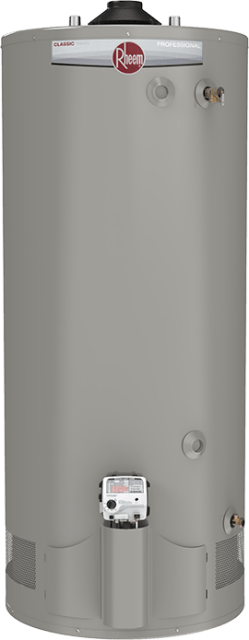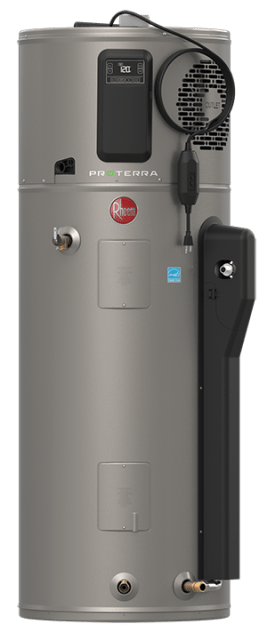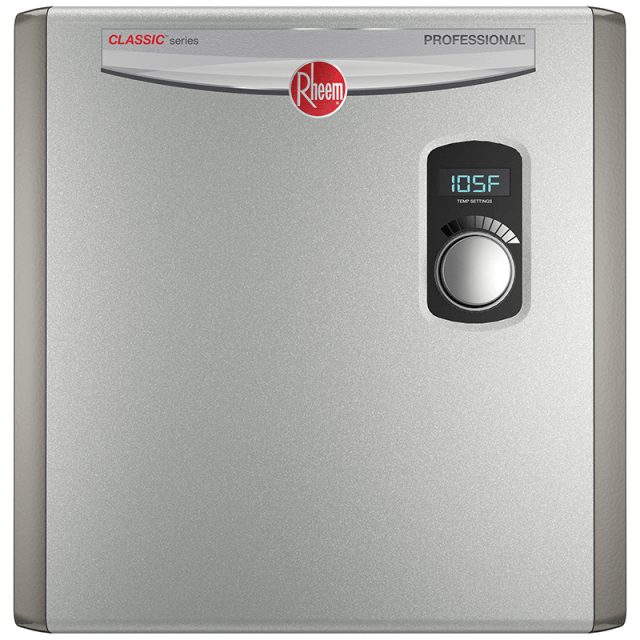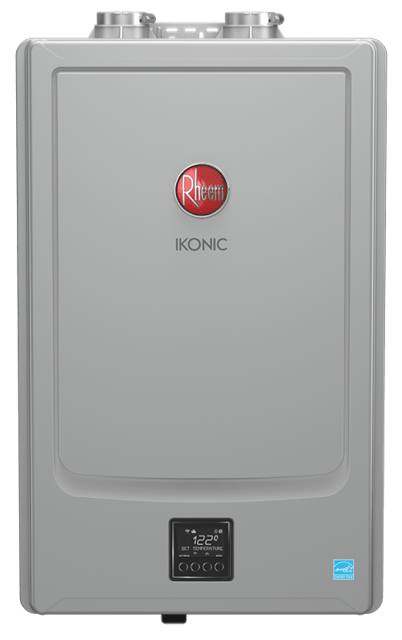- Mon-Fri : 8.00 AM - 4:00 PM
Water heaters are one of the most important appliances in a home. They all supply hot water, but they don’t all operate the same way or provide the same comfort, quality, or quantity of hot water. We would be happy to evaluate your current water heater at no cost to you and provide some options for a new system. If you aren’t getting enough hot water to fill up your bathtub or are running out before everyone in the family has had their morning shower, it might be time for an upgrade. Different homes and families have very different wants and needs in terms of efficiency, space, quantity of hot water, and price. We can walk you through the process of choosing the right system for you.

Basic, simple, easy to swap out with an existing tank style electric. Not a lot of parts to go wrong. The cheapest and easiest style of heater to install.
The least efficient and most expensive to operate. All tank style heaters have the cons that they take up a lot of space and eventually, 100% of tank style heaters will succumb to leaks, that can easily cause property damage if the heater isn’t in a properly installed pan. Slow recovery rate when hot water is used.

Faster recovery rate than electric heaters. Usually cheaper to run than electric, although keep in mind that propane is about twice as expensive as natural gas, and so with propane the savings are much less.
Install is much more complex than electric, as it requires a gas line, as well as venting. Also requires adequate combustion air, limiting where in the house it can be installed. Like all tank style heaters, is susceptible to leaks and takes up a lot of space.

One of the most inexpensive heaters to run, in the same range as tankless gas heaters. Substantial rebates on install price. One of the most energy efficient and environmentally friendly heaters. Can use the same power supply as a standard electric heater. Even if the heat pump can’t keep up or fails, will still operate as a standard electric heater.
Unit is much more expensive than a standard electric. Water piping usually needs to be repiped, and a condensate drain is necessary, which make the install more expensive as well. Compressors are more susceptible to failure than a basic electric.

About 25% more efficient than tank style electric heaters, but much less efficient than a hybrid. Extremely compact. Plumbing installation is very simple. Units themselves are comparable in cost to tank style heaters. If sized properly, will provide unlimited hot water with no recovery time.
Require massive amounts of power. The electrical aspect of the installation is usually the most complex and expensive part, requiring multiple large wires run to the unit, and often requiring electrical service to be upsized. Flow is a major issue, and if the heater is undersized, it won’t be able to keep up with multiple showers. Sizing and determining electrical needs are crucial.

Extremely efficient, and among the cheapest units to run (when on natural gas). Can generate a lot of btu’s and provide a lot of hot water. Easily set up for recirculation. Much more compact than tank style heaters, and can be installed in many more locations.
Require venting, and require large diameter gas supplies. Have a condensate line and T&P that must be run to the exterior. The units are expensive. The install is expensive, requiring repiping, venting, T&P and condensate line plumbing. Require an electrical outlet.
We would be happy to evaluate your current water heater at no cost to you and provide some options for a new system.
Eugene / Springfield
(541) 636-4725
Site Design and Website Hosting by Mud Paw Design House.
Copyright © 2023-2024 Precision Plumbing